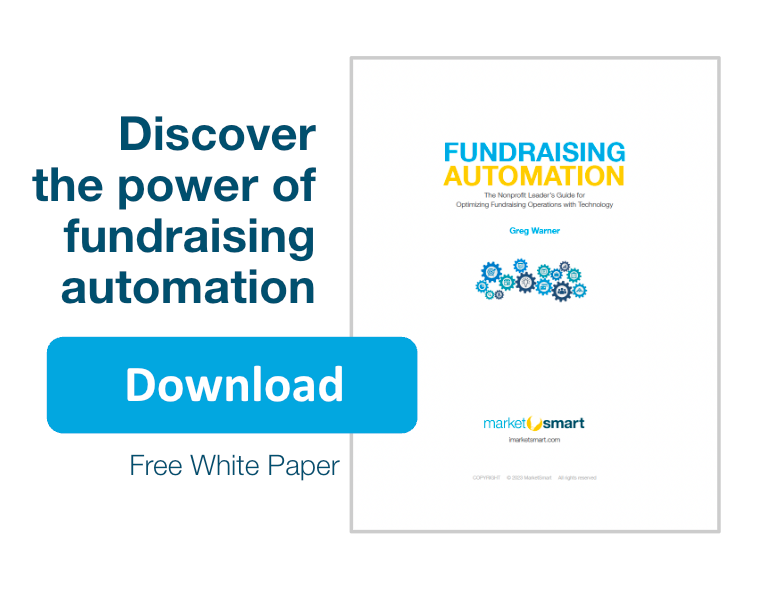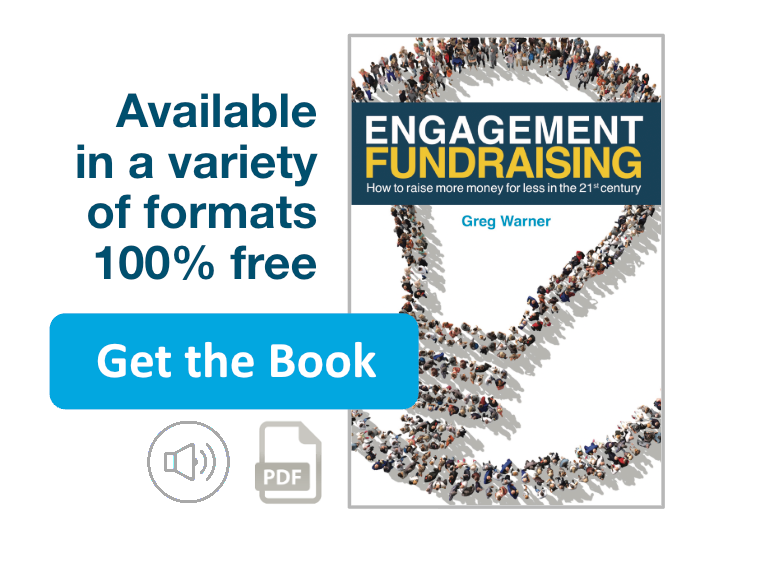I was intrigued.
A few weeks ago one of my employees (Nicole) forwarded the following email to me from her beloved alma mater. It was from the president of the school. Impressive!
The subject line made clear that he was going to let her know how she can help the University of __________. “That’s interesting,” I thought to myself. I wondered if she felt that the University had helped her so much that she would want to return the favor. So I asked Nicole how she felt before I read any further. Her answer: “No.”
Storm clouds were gathering.
Based on her answer I knew she didn’t forward the email to me because it was inspirational. No, it was a doozy.
It began with some bragging about the fact that the Princeton Review said the University of ____________ was named the Best ____ College in America. Should we assume that they won the award because he is so awesome?
Then, he quickly changed gears and began to grumble about how much he wished alumni (like Nicole) could see how amazing he is (Oops! I meant to say how amazing the school is). After all, the Princeton Review could see it.
Next, he lamented that Nicole clearly is not “in the know” and is apparently not proud of her school because she, and so many others like her, are not giving as much as their peers at other schools. The insult wasn’t enough though. He continued by piling on some stats about her and her friends’ failure to give. He hinted that the low participation rate is making him look bad in public. And finally, he wrapped it up with a weak attempt at highlighting some benefits she might gain from giving.
According to him, here are some of the benefits Nicole could enjoy if she’d just give:
- She could help him build momentum by giving early in the year
- She could readily and actively demonstrate her pride
- She could encourage greater percentages of alumni to give in the months to come
Those are some pretty weak benefits.
Followed by some stronger benefits… finally!
- She could help to support academic excellence
- She could help make the school affordable and accessible to future students (but not for her)
- She could help support financial aid (just not to help her pay-off her debts)
Although these are stronger benefits, they don’t really satisfy Nicole’s needs. Folks, people don’t give when they finally understand your organization’s needs. They give when your organization finally understands their needs!
So did she give?
No. Although she still has too much student debt and other priorities, the real reason she kept her money in her wallet was because the email he sent made her feel bad, not good. It’s that simple.
I can’t imagine that the approach was successful. What do you think? Would you give in response to this appeal?
———- Forwarded message ———-
From: President Xxxxx Xxxxxxxxxx
Date: Tue, Sep 12, 2017
Subject: How You Can Help
Dear Nicole:
In the past few months a variety of college rankings have focused on the University of ___________. The Princeton Review named us the “Best ____ College in America” while the Fiske Guide to Colleges credited us for “first-of-their-kind academic programs and innovative out-of-classroom learning and networking opportunities,” that drive ________’s “vision of preprofessional education shaped by commitments to the liberal arts, leadership, and community involvement.” Fiske also recognized our deep commitment to preparing students for life and work, and the unique ways we go about it.
One of my most fervent hopes is that _______ alumni see ___________ as clearly as others do, that they are proud of their association with the extraordinary school they attended, and that their knowledge and pride would be reflected in a commitment of support for their alma mater. So many of the things that make us proudest of this University were made possible by the involvement and generosity of alumni. But in order for the University to continue to flourish into the future, we need the help of all dedicated _______.
During the past five years, more than half of our undergraduate alumni have made a gift to the University. That’s over 18,000 ______s, and I am deeply grateful to each and every one of you. Yet ______________’s annual alumni participation rate is below the level of our peers, hovering under 25%, and does not accurately reflect the pride of our ________ community. Aside from the critical contribution that private philanthropy makes to our continued growth and progress, this matters because giving participation is the most publicly recognized measure of alumni loyalty and satisfaction. Based on my interaction with alumni over the past two years, I am convinced that less than 25% participation does not reflect the ______ pride of our alumni community.
How can you help? By making a gift each year to the annual fund or to the areas of school life that have meant the most to you. By making your gift now, early in the school year, you help us build momentum, readily and actively demonstrate your pride, and encourage greater percentages of alumni giving in the months to come.
Your gift helps to support academic excellence and makes ___________ affordable and accessible to future ______s. It also supports financial aid and the programs, experiences, and opportunities admired and heralded by Fiske and others. It is also an excellent investment, ensuring effective stewardship of your charitable giving, as The Princeton Review ranking attests.
Thank you for your help with this important effort that supports your University and our students. Together we can show the depth of ______ Pride and add the category of strong alumni participation to _________’s many publicly recognized accolades.
To make a gift right now, please go to givenow.-xxxxxxxx-.edu.
Best wishes, and go ________s!
Xxxxxxx Xxxxxxxxx
President
P.S. I hope to see you back on campus for Homecoming on October 26-28!
P.P.S. If this email has crossed paths with your gift, please accept my heartfelt gratitude.
Related Posts:
>>Stop shaming your supporters!
>>5 thoughts that might lead your supporters to feel donor remorse





Wow. That’s spectacularly bad.
University Presidents can and should be your chief development officer – – but to use his/her name and prestige in this fashion is a ‘development don’t’. No, to the messages found within the email. No, to using the President this way. No, to the President sending an email solicitation. No, no, no.
Thanks Sally.
I was afraid to post this because I didn’t want to upset anyone working in the sector. Calling people out (even though I “whited out” the names) isn’t always pretty.
But (as you said) it is “spectacularly bad” and I hope others learn from these “don’ts”.
I’m speechless . . . They need to hire MarketSmart right away.
This reminds me of a story regarding the United Way in Rochester NY. 100 years ago George Eastman, the founder of The Eastman KODAK Company, started the United Way (Then named Community Chest) He was at that time, and for years to come, the most important industrialist, leader and philanthropist in town.
He insisted that EVERYONE who could give, should give. When he didn’t get the response he had hoped for from some of his business friends, He took a full page Ad in one of the local newspapers listing the non-donors names under the bold title ” SLACKERS!”
It worked then but that was George Eastman and that was 99 years ago (1918). I don’t think that I would recommend that strategy today. 😉
Yeah. I agree.
But I have to say… he called out Nicole and so, in turn, I called him out (albeit indirectly and I left his name anonymous).
I guess what goes around comes around.